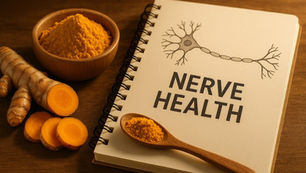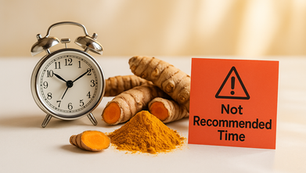top of page
Insights from Nature


Are Cardamom Supplements Safe? Side Effects & Who Should Avoid Them
Cardamom has been part of global food traditions for centuries. From South Asian kitchens to Middle Eastern coffee rituals, this aromatic spice is widely appreciated for its warm, complex flavor. In recent years, cardamom has also become available in capsule form, leading many people to ask an important and reasonable question: Are cardamom supplements safe? While cardamom is familiar as a culinary ingredient, supplements are used differently from food. They are typically mo


Are Clove Capsules Safe? A Research-Based Look at Dosage, Limits, and Overuse
Clove capsules have become a widely used natural option for supporting digestion, immunity, and antioxidant balance. As interest in herbal supplements continues to grow globally, questions about clove capsules safety, safe daily limits, and potential side effects have become increasingly important. Many users want to understand how much is safe, how clove supplement dosage limits are determined, and what risks may appear with overuse. This guide provides a research-grounded e


How to Choose a High-Quality Clove Supplement: Purity, Standardization, and Testing
Clove supplements have become increasingly popular due to their antioxidant capacity, digestive support, and oral wellness benefits. However, the market includes a wide range of formulas—from whole-bud powders to standardized extracts—making it essential to understand how to choose a high-quality product. Factors such as purity, testing, sourcing, and standardization determine whether a clove supplement truly delivers the expected benefits.


Is Turmeric Safe for Dogs?
Known for turmeric's powerful anti-inflammatory curcumin, turmeric has been studied extensively in humans, but growing research shows it may also benefit animals, especially dogs with arthritis, allergies, or chronic inflammation. However, not every dose or form of turmeric is appropriate for pets. Let’s explore what science says about turmeric’s safety, potential benefits, and the correct way to use it for your dog’s well-being.


Will Turmeric Help Neuropathy?
Neuropathy affects millions of adults, especially those with diabetes, injuries, or chronic inflammation. Conventional treatments often provide partial relief but can have side effects, leading many to explore natural options like turmeric. Research suggests curcumin, the main active compound in turmeric root, may help protect nerves, reduce inflammation & support pain relief. But how strong is the evidence, & how can turmeric be used safely for nerve health? Let’s look at wh


Will Turmeric Break a Fast?
Intermittent fasting has become one of the most popular wellness practices for improving metabolism, gut health & energy levels. But many people who drink turmeric tea or take turmeric supplements in the morning wonder: Will turmeric break my fast? Turmeric itself does not break a fast when used in small amounts, but the details depend on what form you use & why you’re fasting. Let’s explore how turmeric curcumin interacts with the body during fasting & how to include it safe


Will Turmeric Stain Teeth or Skin?
While turmeric's benefits for inflammation and skin health are well-documented, many people notice that it can temporarily stain teeth, skin, or clothing.
The good news? These stains are harmless, short-lived, and easy to prevent or remove. In fact, when used properly, turmeric may even improve the brightness of your teeth & complexion. Let’s look at what causes these stains, what science says about turmeric’s effects on enamel and skin, & how to use it safely in your dail


When Should You Not Take Turmeric?
Turmeric (Curcuma longa) is a golden spice valued for centuries for its support in inflammation balance, metabolism, and immune health. Its main bioactive compound, curcumin, provides powerful antioxidant and cellular protection benefits. However, there are times and health conditions when taking turmeric is not recommended. Understanding when to avoid it helps prevent unwanted interactions and ensures that this herb supports your body safely. Why Turmeric Isn’t Always Safe f


Turmeric and Blood Pressure Drugs: What Research Reveals
Turmeric is a well-known herbal supplement praised for its anti-inflammatory, antioxidant, and circulatory benefits. Many people who take blood pressure medication also use turmeric for joint health or general wellness. However, combining turmeric or its active compound curcumin with antihypertensive medications may cause unexpected effects. This article explains the scientific evidence, potential risks, and safe ways to use turmeric if you’re taking blood pressure medicine.


Who Should Not Take Turmeric or Curcumin?
Turmeric is a well-known spice and herbal supplement recognized for its anti-inflammatory and antioxidant properties. While turmeric is safe for most people when used in food, not everyone should take turmeric or curcumin supplements, especially in high doses. Certain health conditions and medication combinations can make turmeric unsafe or require professional supervision. Understanding these risks helps ensure turmeric is used effectively and responsibly for long-term welln


Turmeric Safety and Usage Guidelines: What You Should Know
Turmeric (Curcuma longa) is widely recognized for its benefits in balancing inflammation, supporting metabolism & providing antioxidant protection. However, like all natural compounds with strong bioactivity, turmeric & its key component curcumin should be used with understanding & care. While most people tolerate turmeric well, certain health conditions & medication combinations may require caution.


How to Eat Beetroot Daily Without Getting Bored
Beetroot has earned a reputation as a heart-healthy superfood — but how can you realistically eat it every day without tiring of its earthy flavor or complex preparation?The good news: beetroot’s natural sweetness and versatility make it easy to incorporate into both meals and supplements. Whether you enjoy fresh juice, smoothies, roasted dishes, or capsules, there are convenient ways to enjoy its benefits daily while maintaining balance and variety.This article shares practi
bottom of page